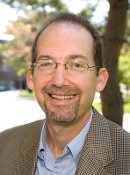 by Michael R. Meyer, Director William G. Jackson CTL
by Michael R. Meyer, Director William G. Jackson CTL
College of Engineering Dean Janet Callahan has selected Tim Schulz (ECE) as the final member of the 2019 Deans’ Teaching Showcase. As a teacher he is widely acknowledged as one of the ECE departments best, with his friendly, humorous style and his devotion to his students’ learning. But Schulz’s selection here is, according to Associate Dean Leonard Bohmann for his “leadership in using technology to deliver technical material in electrical and computer engineering.”
Starting in 2012, Schulz created a series of 10 to 15 minute videos collectively titled “Electric Circuits” and posted them on YouTube. Though he created them with his EE2111 (Electric Circuits 1) class in mind, they are reaching a much wider audience. In fact, one titled “Introduction to Thevenin Equivalent Circuits” has gotten more than 152,000 views.
Since that time, Schulz has also developed a phone app of randomized electric circuit problems to use in this course. He develops these aids so students can develop a mastery of the course material. As one student noted, “The videos and the infinite practice problems were the most helpful. As much as I hate to say this, the quizzes were also helpful.”
In his courses, Schulz develops from scratch his own interactive web-based approach to homework sets and quizzes, taking full advantage of the capabilities of Canvas and writing his own scripts for generating homework problems with randomized parameters. His colleagues recognize this, and some have adopted Schulz’s materials when they teach the same classes.
Most recently, Schulz has taken the lead in developing new courses for the online MSEE program with a focus on communications and signal processing, in partnership with Keypath Education, Inc. He developed and is teaching for the second time, EE5300, Mathematical and Computational Methods in Engineering, which is the entry point into the program.
His course engages students through a series of interactive MATLAB computational exercises which meet modern standards for online course delivery and are breaking new ground for the ECE Department.
Students find this approach to be very helpful. One said, “The canvas structure paired with the lecture truly was a great combination. The prep work must have been substantial but was well worth it.”
Another provides even broader praise of both Schulz and the course by saying, “The course is excellent and engaging. Overall, I think this class is a must for any student wishing to have a solid starting foundation in graduate studies in engineering. Dr. Schulz is an outstanding professor with extensive research and professional experience and I would totally recommend students to take this class.”
Schulz is currently developing the third course for the online MSEE program, EE5500 Probability and Stochastic Processes, which will be taught for the first time this summer. He agrees that developing an online course is much more rigorous then teaching face-to-face, saying “You need to do more planning of how to approach a topic. You don’t have the ease of correcting an approach (or even an equation) in real time, so it is a much more deliberate process.”
However, this higher level of rigor is a challenge he enjoys; he’s already signed on to develop his next course, EE5521 Detection and Estimation Theory, which will be offered online for the first time sometime in 2020-2021 academic year.
Callahan emphasizes that it’s really about the technology enabling better learning. In her words, “Tim Schulz’s effective use of technology shows that student learning and satisfaction can both increase with the use of modern tools.”
Schulz will be recognized at an end-of-term luncheon with other showcase members and is now elgible for one of three new teaching awards to be given by the William G. Jackson Center for Teaching and Learning this summer recognizing introductory or large class teaching, innovative or outside the classroom teaching methods, or work in curriculum and assessment.